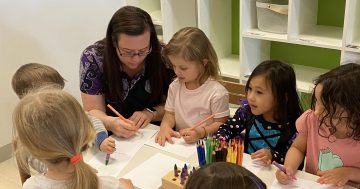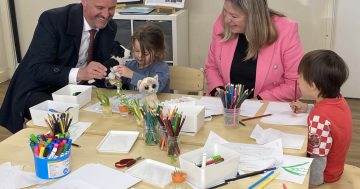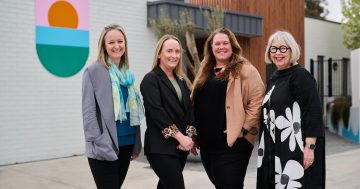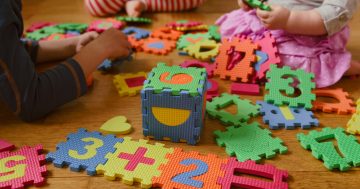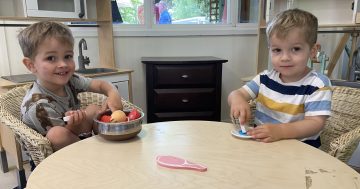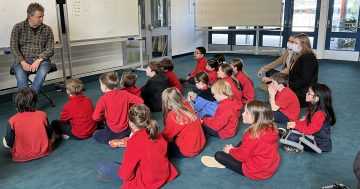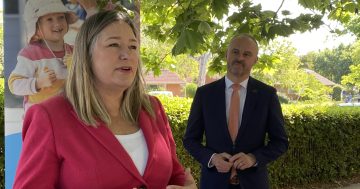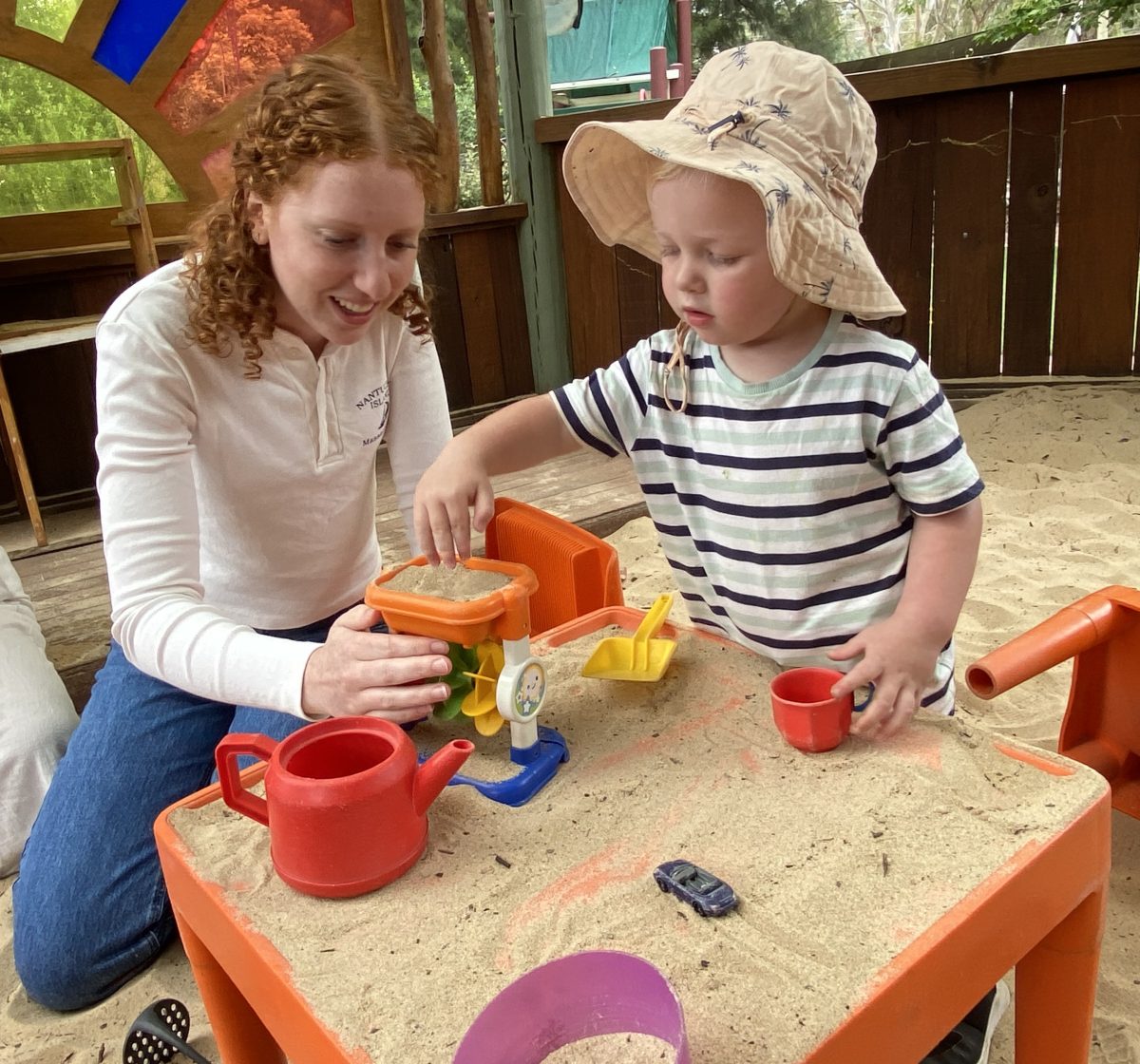
Aimee Hedgecoe plans on building her career in the early childhood sector. Photo: Claire Fenwicke.
Women either entering the early childhood education workforce for the first time or just starting out can now take advantage of a new program to support them both financially and emotionally.
The $2.125 million Early Learning Connection Program will help up to 260 women with relevant study – be it a Certificate III, Diploma or Bachelors Degree in Early Childhood Education – in Canberra.
Bronwyn Maher was part of the program’s pilot in 2023.
She already had 16 years of experience in the sector but wanted to expand her knowledge.
Bronwyn previously tried to study with an online university but found the experience “incredibly overwhelming”.
“I had barriers around placements, financial stress, balancing parenting, work and study,” she said.
“Joining the Early Learning Connection Program made me feel confident, empowered me and provided me with the support I needed in order to be successful in my studies.”
Participants receive financial assistance and help with facilitating employment opportunities in early childhood centres while studying. They also have access to their own educator coach to help them balance work, study, life commitments and wellbeing.
For participants with children under five years, their educator coach can help with enrolling the kids at a centre while their mother works and studies.
The program will be facilitated by Baringa, in partnership with the University of Canberra, Canberra Institute of Technology, Australian Institute of Management and early learning centres across the ACT.
Both Leanne Niven and Aimee Hedgecoe have been accepted into the program, using it to study a bachelor’s degree.
Leanne has more than 12 years experience in the sector, but hadn’t been able to study further due to financial difficulties.
She said gaining her degree would not only give her more opportunities in the sector, but also improve how she educates children.
“I do have a lot of experience but … I just want to have a better understanding of child development and keep learning so I can help them learn and develop,” she said.
“[For example], the importance of play, that’s one of the modules that I’ll be starting at the University of Canberra … that’s how things have changed and I’m really looking forward to studying and developing more knowledge.”
Recent high school graduate Aimee Hedgecoe is especially reassured by having access to a mentor to help her juggle part-time study and work.
“I did struggle a bit with the work [in Year 12], so it’s going to be amazing to have someone … who I can actually go to for help,” she said.
“I’m really hoping I can follow this career and do it forever.”
The program is only available to women, which Education Minister Yvette Berry said was by design.
“In a workforce that is female-dominated, this is a really important initiative because it does give them the chance to study with the financial pressure alleviated,” she said.
“We know it is challenging for female workers in the early childhood sector, particularly those who have young people in their care, because they need to have that wraparound support.”
There’s no caveat to be part of the program, meaning participants can come from anywhere in the country and decide to take up a job outside of the ACT once their studies are complete.
But Ms Berry is confident the connections they’ll make while studying in Canberra will keep them here.
“There’s nothing stopping anyone from leaving the ACT – I can’t understand why [they’d want to] – but this is about investing in what we know is an issue within the ACT community,” she said.
“We want to make sure we have the best and most highly qualified workforce, but we can’t do that without providing funding and those important wraparound supports.”
The program is particularly important to the ACT Government’s vision for its universal free three-year-old preschool, where 300 hours of free education are provided to eligible families by a degree-qualified early childhood teacher.
The program has been welcomed by those in the sector, including the Minderoo Foundation’s Thrive by Five campaign.
However spokesperson Jay Wetherill said more needed to be done by all governments to also encourage men into the sector.
“One of the key things we are calling for is a national strategy to attract men to train and work as early childhood educators, because children benefit from engaging with caring, positive male role models at home, at childcare and at preschool,” he said.
Men currently make up two per cent of the early childhood education workforce.
Find out more online or by emailing connect@baringa.org.au.












